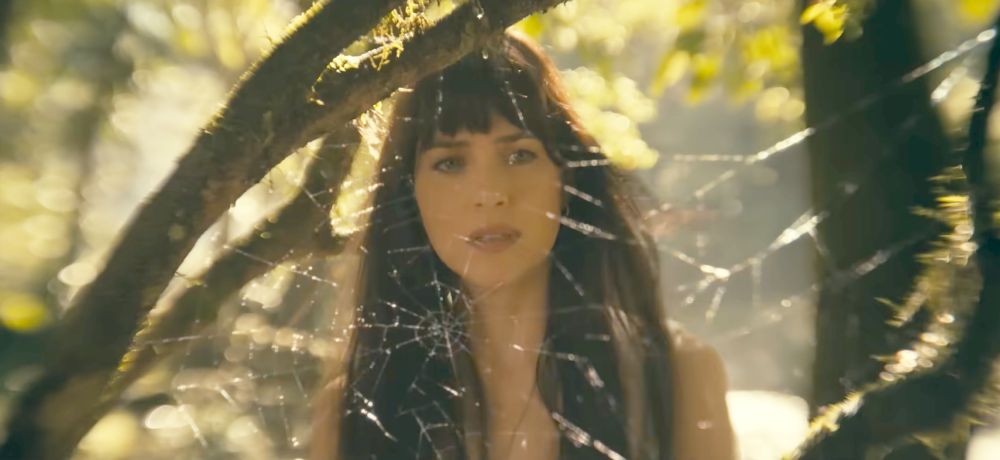 ★★★
★★★
“Adventures in Babysitting.”
Having read quite a number of articles on (p)reviews for this movie and now having seen it myself, I’m beginning to think you can buy negative reviews to torpedo product that might compete with yours. I’ve seen this before, e. g. when the press tore down John Carter so that The Hunger Games could become the defining blockbuster franchise of the decade. Or when it became very obvious Disney had ties to RottenTomatoes.com: the Internet may recall this as the “Great Captain Marvel online war” :) It seems this takes place in particular with comic-book or superhero movies not from Disney/Marvel. It happened regularly with the X-Men movies, when 20th Century Fox still existed as an independent studio. It happened when the – admittedly, very often not so good – DC movies came out: neither Black Adam nor Aquaman 2 were as bad as the reviews made them.
And now, it seems to happen with “Sony’s Spider-Man Universe” (SSU). That the quality of these vary greatly is not in question. Of course they do. While the Spider-Man films with Tom Holland are beloved by fans, and seem to be well-regarded by critics, things don’t look so bright for the extended universe Sony is building. The first Venom movie with Tom Hardy was torn down by the media, but cheered by the cinema-going masses; the second was similarly split. Then Morbius with Jared Leto got almost entirely negative reviews and that trend continues with Madame Web. Things don’t look good for Kraven the Hunter, another entry in the universe due out later this year.
I’ll be honest and admit it: Madame Web is not a great cinematic revelation, it’s definitely not the “must-see” superhero film of the year and probably won’t blow your socks off. But – and this is where I feel I get justifiably angry – “not great” is not the same as “bad”. I’m coming to the conclusion you can’t trust sites like Rotten Tomatoes, and you shouldn’t read reviews before you watch. A movie review (and this counts for mine too) can’t tell if you will like a movie or not. Follow your instinct and make up your own mind, that’s my friendly advice to the dedicated film-goer. This is not to say Madame Web is perfect entertainment. But I will defend it against anyone saying it is a “bad” movie. You may call it bland, boring or mediocre if you like, but that’s not the same. I’ve seen enough bad movies in my lifetime to know, bad looks very different.
So, what’s up with Madame Web? The film starts in the South American jungle, where pregnant scientist Constance (Kerry Bishé) seeks a specific spider for its medical uses, but is killed by assistant Ezekiel Sims (Tahar Rahim), who wants the spider for himself. Apparently – though it is never explained how – he uses it to become a wealthy and still astonishingly young looking man (this prologue happens in 1973, than jumps to 2003, so he should be around 60?). The so-called “spider people” can’t save Constance, who was bitten by a spider before giving birth, but give her daughter up for adoption.
 Jump forward to 2003. Cassandra “Cassy” Webb (Johnson), Constance’s daughter, is a paramedic who saves lives everyday, but is strongly averse to emotional attachment. I wondered what she does in her leisure time – but then, the same could be said about me! After being drowned, dead for three minutes, and revived, she has visions which turn out to be clairvoyant; she can glimpse the future moments before it happens. After experiencing the death of a colleague, she realizes she can act to stop her visions taking place. [What a revelation!] While on a train she foresees the death of three girls, killed by a masked man with superpowers. She tries her best to save them; no easy job as she has to improvise and out-think her pursuer constantly, while taking care of young girls who don’t necessarily follow her orders. That’s the moment you realize this movie might be made with 30-year-old moms as its target audience, which is something I have not seen before on the big screen.. Kudos for originality, I think.
Jump forward to 2003. Cassandra “Cassy” Webb (Johnson), Constance’s daughter, is a paramedic who saves lives everyday, but is strongly averse to emotional attachment. I wondered what she does in her leisure time – but then, the same could be said about me! After being drowned, dead for three minutes, and revived, she has visions which turn out to be clairvoyant; she can glimpse the future moments before it happens. After experiencing the death of a colleague, she realizes she can act to stop her visions taking place. [What a revelation!] While on a train she foresees the death of three girls, killed by a masked man with superpowers. She tries her best to save them; no easy job as she has to improvise and out-think her pursuer constantly, while taking care of young girls who don’t necessarily follow her orders. That’s the moment you realize this movie might be made with 30-year-old moms as its target audience, which is something I have not seen before on the big screen.. Kudos for originality, I think.
Some changes from the comics were obvious. I’m no expert on all things and characters around Spider-Man but last time I saw Madame Web, was a 90’s animated series where she was an old, blind woman in a wheel-chair, She controlled the web of time and sent ol’ Spidey on a mission. This film goes full circle, having Cassie at the end in a wheel-chair and wearing dark glasses – enough time to age, when she needs to appear in a Spidey movie playing 20-something years in the future. Also, the three girls who will be Spider-Women and -Girls of the future (played by Sweeney, O’Connor and Merced) are not really characters I know. Having had a thing for the Spider-Woman comic an eternity ago, I remember that Mattie Franklin was white and the niece of J. Jonah Jameson. Here she is black and her background has totally changed. I guess the aim is to be as diverse as possible.
I personally don’t mind a movie centered on female characters in the Spider-Man universe. Heck, for decades I’ve been waiting for a Black Cat or Silver Sable movie, though right now that prospect seems quite dim considering the reaction here. But having this movie precede the Tom Holland Spider-Man does give me the feeling this is another attempt to give a hero’s tale a backstory based on an earlier woman (as done terribly by British TV classic Doctor Who). That said, this movie is not “woke”. Yes, the villain is a man but there is no male-bashing or ridiculing, as has become so common nowadays e. g. by Disney. It just puts female characters at the focus of the story and that’s absolutely okay by me.
What did surprise me is the main protagonist. Madame Web is neither one of many charismatic villains the Spidey-universe offers, nor what I’d call a “hero”. Making her the center of the story is a gamble, with the need for a scenario where she becomes the main character. Which the screenplay does quite well, I’d say. It would have been easier to make a movie about the Spider-Women or Spider-Girl, but here we are. Also, the title character has no super-powers which are interesting to watch. She can’t crawl up walls, jump from roof to roof, or has super-strength. She can just see a bit into the future. That’s it, until the end when she develops the ability to be in several places at once to help her girls (yeah, it’s definitely a movie for moms!). It means the screenwriters really had to think hard to provide the necessary action. and have their protagonist use her wits to counter her opponent, who unfairly uses early face-identifying computer programs to find the three girls.
A word on the actors. Dakota Johnson (daughter of Don Johnson and Melanie Griffith, granddaughter of Tippi Hedren) has long left the memories of her early Fifty Shades of Grey success behind her. She is a good, professional actress and I’ve never seen a bad performance from her. This movie is no exception. The “girl” actresses don’t register strongly here; their characters are hardly given much to do here, which can be considered a weakness of the script, except being kind of a pain in Cassie’s neck. Tahar Rahim as the villain, comes across a bit bland which might not be the actor’s fault – the character is just not very interesting. His main goal is to stop these girls, who may become dangerous for him later. Ironically, as Cassie realizes, it’s exactly this fear of the future which leads to his downfall here and now, at her hands.
Once again, I stress Madame Web is not a bad movie. It may be too long – though less than some of the bloated blockbusters Hollywood produces nowadays. It could have a more interesting villain, with better motivation. They could have chosen a more interesting main character. But if there is one real problem with all the new SSU movies, it is the lack of humor. A bit of it, integrated into the heroine’s or villain’s character, would go a long way in making a superhero movie a more entertaining product. But maybe that’s not the route Sony wants to go, perhaps to distance themselves from the style of Marvel. It would be regrettable: a surprise hit like Venom showed how that element is appreciated by audiences. If you give them drama, action and suspense, they must also have the chance to let go of the tension with laughter. An approach classic James Bond movies employed, to good effect, at the beginning of the action movie genre.
All in all, the movie, its direction, script, acting performances, etc., are solid. Not great. Also not terrible. It is an acceptable solid superhero comic-book movie, though the superhero thing comes across here as toned down. Just don’t expect the big typical blockbuster epic that too many people may nowadays associate with the genre. Who knows? If Sony continues in this manner maybe they can actually get their SSU to work for the large audience? If not, I imagine they can still put all of these newly released characters in the next Spider-Man movie with Tom Holland!
Dir: S. J. Clarkson
Star: Dakota Johnson, Sydney Sweeney, Isabela Merced, Celeste O’Connor
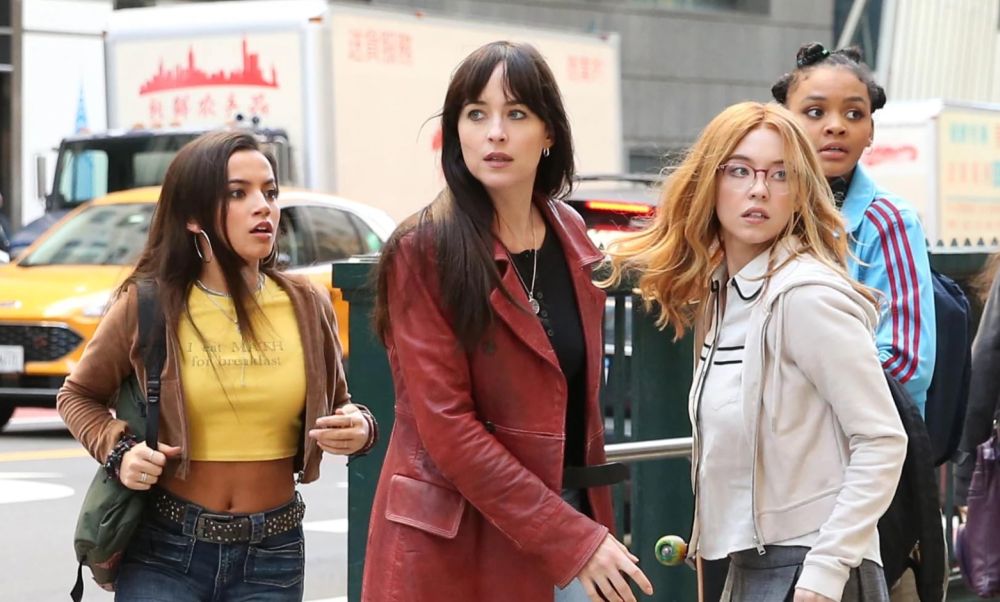
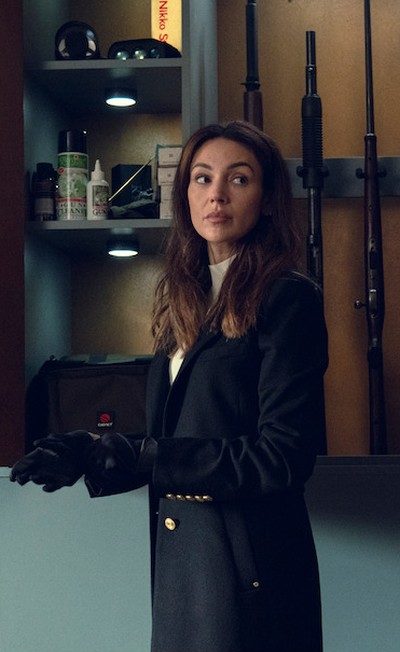 Maya Stern (Keegan) is having a rough patch. A former helicopter pilot in the military, she was sent home and discharged under murky circumstances. While she was away, her sister was killed in what looks like a botched burglary, and not long after her return, husband Joe is also shot and killed in front of Maya, when they are walking in the park. But is everything what it seems? Because when checking the nanny-cam monitoring her young daughter, Maya sees a shocking site: her supposedly dead husband visiting the house. This kicks Maya into an unrelenting search for the truth, which will send her down a rabbit-hole and uncover a lot of sordid secrets, dating back decades.
Maya Stern (Keegan) is having a rough patch. A former helicopter pilot in the military, she was sent home and discharged under murky circumstances. While she was away, her sister was killed in what looks like a botched burglary, and not long after her return, husband Joe is also shot and killed in front of Maya, when they are walking in the park. But is everything what it seems? Because when checking the nanny-cam monitoring her young daughter, Maya sees a shocking site: her supposedly dead husband visiting the house. This kicks Maya into an unrelenting search for the truth, which will send her down a rabbit-hole and uncover a lot of sordid secrets, dating back decades.




 ★★★
★★★ Jump forward to 2003. Cassandra “Cassy” Webb (Johnson), Constance’s daughter, is a paramedic who saves lives everyday, but is strongly averse to emotional attachment. I wondered what she does in her leisure time – but then, the same could be said about me! After being drowned, dead for three minutes, and revived, she has visions which turn out to be clairvoyant; she can glimpse the future moments before it happens. After experiencing the death of a colleague, she realizes she can act to stop her visions taking place. [What a revelation!] While on a train she foresees the death of three girls, killed by a masked man with superpowers. She tries her best to save them; no easy job as she has to improvise and out-think her pursuer constantly, while taking care of young girls who don’t necessarily follow her orders. That’s the moment you realize this movie might be made with 30-year-old moms as its target audience, which is something I have not seen before on the big screen.. Kudos for originality, I think.
Jump forward to 2003. Cassandra “Cassy” Webb (Johnson), Constance’s daughter, is a paramedic who saves lives everyday, but is strongly averse to emotional attachment. I wondered what she does in her leisure time – but then, the same could be said about me! After being drowned, dead for three minutes, and revived, she has visions which turn out to be clairvoyant; she can glimpse the future moments before it happens. After experiencing the death of a colleague, she realizes she can act to stop her visions taking place. [What a revelation!] While on a train she foresees the death of three girls, killed by a masked man with superpowers. She tries her best to save them; no easy job as she has to improvise and out-think her pursuer constantly, while taking care of young girls who don’t necessarily follow her orders. That’s the moment you realize this movie might be made with 30-year-old moms as its target audience, which is something I have not seen before on the big screen.. Kudos for originality, I think.
 The first
The first  As we head towards the 2024 election, I’m forced to conclude that the most implausible element here is not terrorists hijacking Air Force One, or a lone Secret Service agent taking out scores of bad guys. No, it’s having a President under fifty: someone who can string coherent sentences together, parachute out of a plane without breaking his hips, and personally gun down an enemy or two as well. Yeah, that’s not happening anytime soon. Otherwise, this teeters on the edge of being as generic as its title. But it passes muster due to decent performances, especially from McNamara as agent Allison Miles, and well-managed action from Bamford, who has 30+ years experience in stunt work.
As we head towards the 2024 election, I’m forced to conclude that the most implausible element here is not terrorists hijacking Air Force One, or a lone Secret Service agent taking out scores of bad guys. No, it’s having a President under fifty: someone who can string coherent sentences together, parachute out of a plane without breaking his hips, and personally gun down an enemy or two as well. Yeah, that’s not happening anytime soon. Otherwise, this teeters on the edge of being as generic as its title. But it passes muster due to decent performances, especially from McNamara as agent Allison Miles, and well-managed action from Bamford, who has 30+ years experience in stunt work.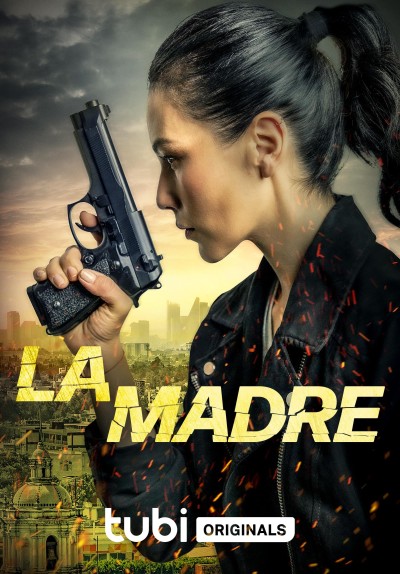 I ask, because this film, made in Mexico City and starring mostly Mexicans, seems to be trying to take place in America. It’s not doing a good job of it. The heroine is Martha (Mazarrasa), a single mother running a shop in a border American city with the help of her two daughters, Eva (Reynaud) and Raquel. Then Eva is kidnapped by evil Mexican cartel boss, El Chacal (Guerrerio), and held by him, even after Martha pays the requested ransom. However, it turns out Mom has a hidden past, which gave her a set of special skills. With the help of sympathetic cop, Juan Cinderos (Dulzaides), she sets out to bring down his organization and retrieve her daughter.
I ask, because this film, made in Mexico City and starring mostly Mexicans, seems to be trying to take place in America. It’s not doing a good job of it. The heroine is Martha (Mazarrasa), a single mother running a shop in a border American city with the help of her two daughters, Eva (Reynaud) and Raquel. Then Eva is kidnapped by evil Mexican cartel boss, El Chacal (Guerrerio), and held by him, even after Martha pays the requested ransom. However, it turns out Mom has a hidden past, which gave her a set of special skills. With the help of sympathetic cop, Juan Cinderos (Dulzaides), she sets out to bring down his organization and retrieve her daughter.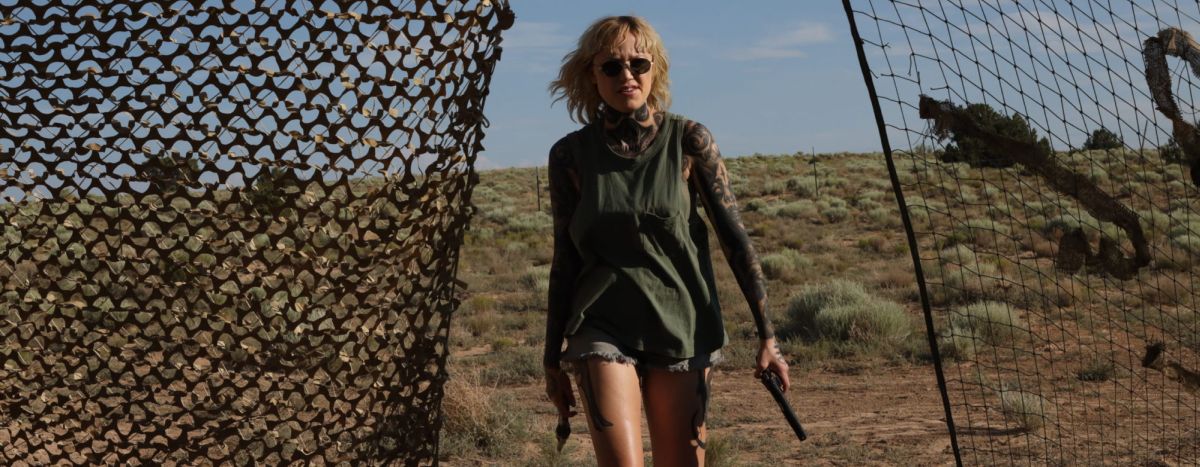 ★★★★
★★★★ To be honest, I never read Boston Teran’s novel. I wasn’t aware of the story until this movie came out here on DVD – but then the book was also never released in my country. I’ve every intention to read it and have already ordered it in English. However, I can’t make any comparisons between the book and the movie adaptation, directed by Nick Cassavetes, son of John Cassavetes.
To be honest, I never read Boston Teran’s novel. I wasn’t aware of the story until this movie came out here on DVD – but then the book was also never released in my country. I’ve every intention to read it and have already ordered it in English. However, I can’t make any comparisons between the book and the movie adaptation, directed by Nick Cassavetes, son of John Cassavetes.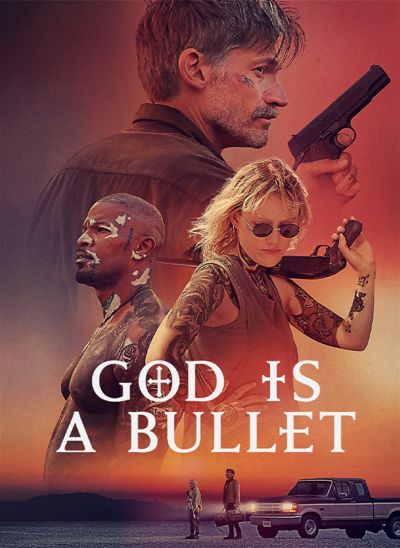 It’s the most fulfilling part of the movie. In a way, Case is Bob’s guarding angel; she knows about those people, how they behave, how to deal with them, also the danger that they embody as human life has hardly any value for them. Bob goes “undercover” to find his daughter which also means he has to look and appear like these people, so gets a full-body tattoo by “The Ferryman” (Foxx in a larger supporting role). The aim is to contact the sect, whose cult leader Cyrus (Glusman) is a specific piece of human scum, and deal with him. All of what has happened ties back to Bob’s father in law and his superior at the police office, though he doesn’t know this.
It’s the most fulfilling part of the movie. In a way, Case is Bob’s guarding angel; she knows about those people, how they behave, how to deal with them, also the danger that they embody as human life has hardly any value for them. Bob goes “undercover” to find his daughter which also means he has to look and appear like these people, so gets a full-body tattoo by “The Ferryman” (Foxx in a larger supporting role). The aim is to contact the sect, whose cult leader Cyrus (Glusman) is a specific piece of human scum, and deal with him. All of what has happened ties back to Bob’s father in law and his superior at the police office, though he doesn’t know this.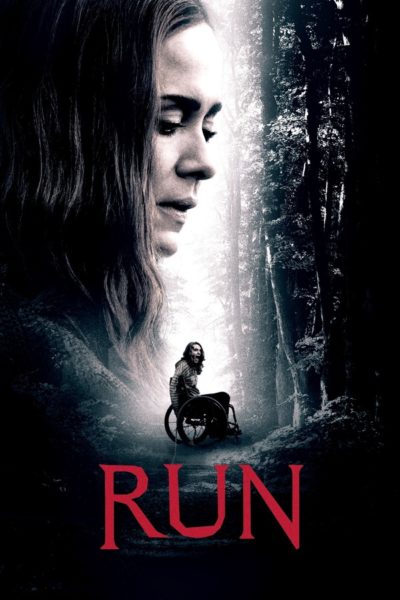 The title here is used ironically, because “run” is the last thing the heroine can do. She is Chloe Sherman (Allen), a teenage girl who has been plagued by medical issues since birth, requiring full-time care from her mother, Diane (Paulson). She’s partially paralyzed, unable to walk, and also suffers from severe asthma. Chloe is, however, awaiting the result of her college application, and is eagerly looking forward to starting a new, independent life, having been home-schooled by Mom, who is the very definition of a helicopter parent. One day, Chloe discovers some of her medication is in her mother’s name, and gradually discovers more evidence that something is very wrong with Diane. If her suspicions are right, the bigger question is, what can Chloe do about it?
The title here is used ironically, because “run” is the last thing the heroine can do. She is Chloe Sherman (Allen), a teenage girl who has been plagued by medical issues since birth, requiring full-time care from her mother, Diane (Paulson). She’s partially paralyzed, unable to walk, and also suffers from severe asthma. Chloe is, however, awaiting the result of her college application, and is eagerly looking forward to starting a new, independent life, having been home-schooled by Mom, who is the very definition of a helicopter parent. One day, Chloe discovers some of her medication is in her mother’s name, and gradually discovers more evidence that something is very wrong with Diane. If her suspicions are right, the bigger question is, what can Chloe do about it?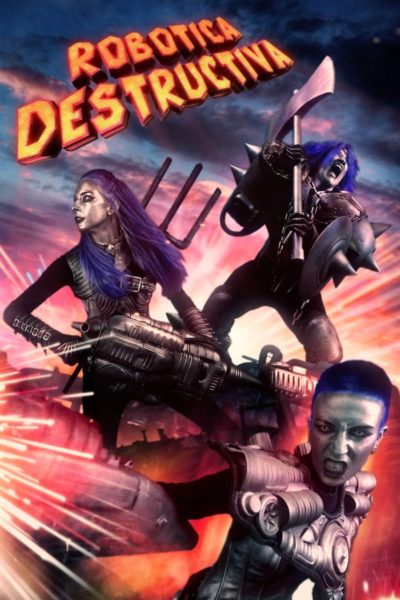 To bring out one of my go-to phrases, if I was eleven years old, and hopped up off my face on candy-floss, this would probably be one of my favorite movies. Instead, it’s the kind of film which apparently caused my brain to shut off as some kind of defense mechanism. I’m not kidding. Ten minutes into my first viewing attempt, I suddenly fell asleep. I think my mind may have experienced the cerebral equivalent of a blue screen of death and ran out of memory, forcing a shutdown. For this is just an insane overload of a movie, all the more so considering it was a labour of love, assembled over a period of multiple years.
To bring out one of my go-to phrases, if I was eleven years old, and hopped up off my face on candy-floss, this would probably be one of my favorite movies. Instead, it’s the kind of film which apparently caused my brain to shut off as some kind of defense mechanism. I’m not kidding. Ten minutes into my first viewing attempt, I suddenly fell asleep. I think my mind may have experienced the cerebral equivalent of a blue screen of death and ran out of memory, forcing a shutdown. For this is just an insane overload of a movie, all the more so considering it was a labour of love, assembled over a period of multiple years.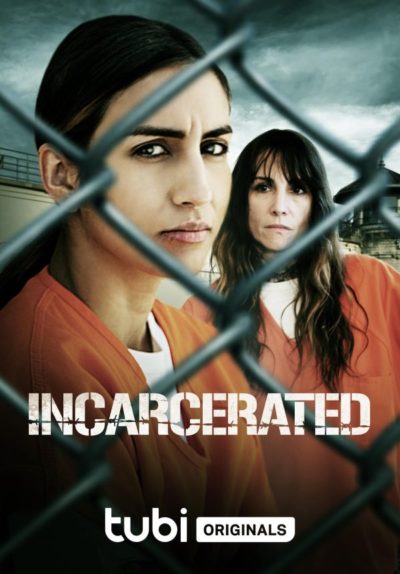 There’s an interesting idea here, at least. As a young child, Elena (Ayala) has to watch as her mother and brother are killed by crime boss babe Maeve (McComb), after her father (Pardo) made the ill-advised decision to try and steal from her. It’s particularly awkward, since Maeve made him choose which of his two children should live… then killed the one he picked, his son. This Sophie-like choice has, understandably, left the father-daughter relationship somewhat strained, to put it mildly. 15 years later, Elena is a druggie, who robs a liquor store and gets sent to jail as a result. Except, this incarceration is entirely deliberate, because it’s the facility in which Maeve is now serving time, giving Elena her long-awaited chance for revenge.
There’s an interesting idea here, at least. As a young child, Elena (Ayala) has to watch as her mother and brother are killed by crime boss babe Maeve (McComb), after her father (Pardo) made the ill-advised decision to try and steal from her. It’s particularly awkward, since Maeve made him choose which of his two children should live… then killed the one he picked, his son. This Sophie-like choice has, understandably, left the father-daughter relationship somewhat strained, to put it mildly. 15 years later, Elena is a druggie, who robs a liquor store and gets sent to jail as a result. Except, this incarceration is entirely deliberate, because it’s the facility in which Maeve is now serving time, giving Elena her long-awaited chance for revenge.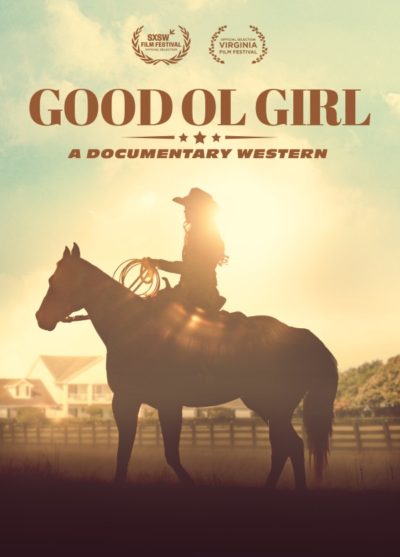 This documentary takes a look into the lives of three women in Texas, who are all operating in the male-dominated world of ranching. Some were born into it, while others came to it through choice. In particular, Mandy Dauses falls into the latter category, having left her East-coast home because she felt that Texas represented the best chance to fulfill her ambition of becoming a ranch manager. On the other hand, Sara Lemoine Knox is struggling to balance what she feels is an obligation to carry on in the family business, with her own goal of becoming a lawyer. Meanwhile, Martha Santos is looking to find work in that line, but without her own property, is finding it a challenge.
This documentary takes a look into the lives of three women in Texas, who are all operating in the male-dominated world of ranching. Some were born into it, while others came to it through choice. In particular, Mandy Dauses falls into the latter category, having left her East-coast home because she felt that Texas represented the best chance to fulfill her ambition of becoming a ranch manager. On the other hand, Sara Lemoine Knox is struggling to balance what she feels is an obligation to carry on in the family business, with her own goal of becoming a lawyer. Meanwhile, Martha Santos is looking to find work in that line, but without her own property, is finding it a challenge.